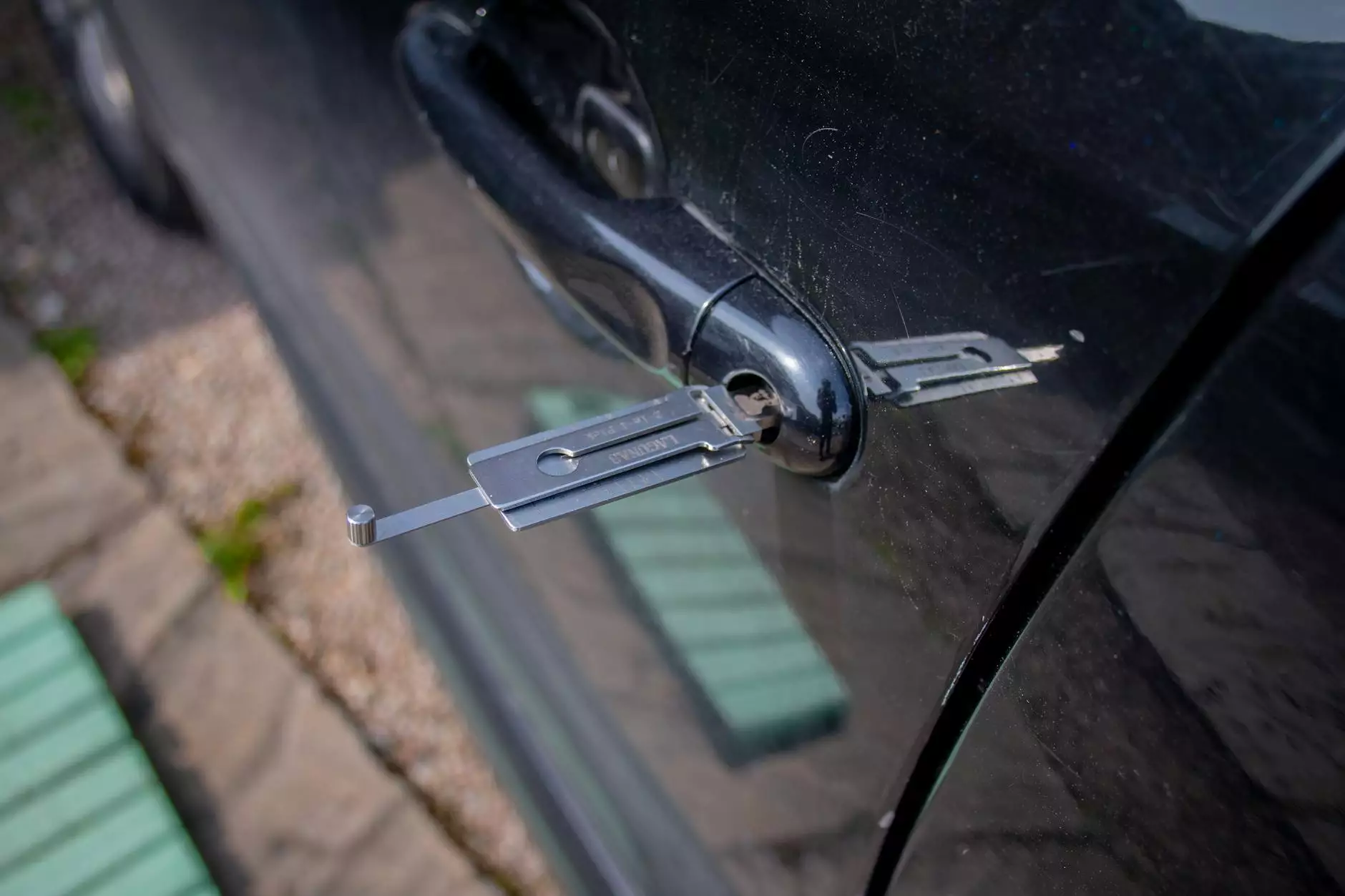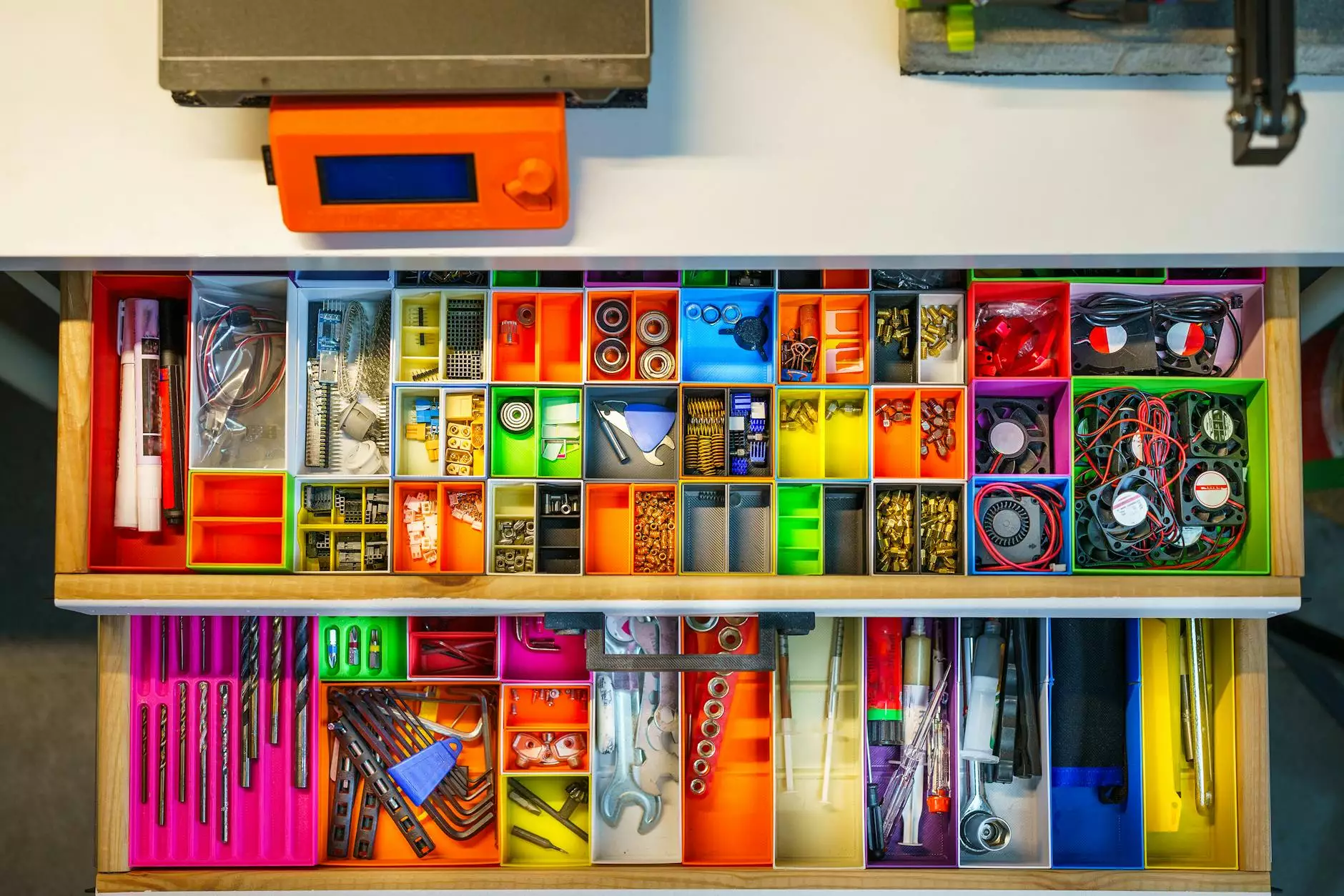Enhancing Security: The Importance of Quality Lock Hardware

The security of our homes and businesses is paramount in today’s world. When it comes to safeguarding our assets, nothing plays a more critical role than lock hardware. Whether you’re looking to secure your home or your office, understanding the various types of lock hardware available and how they work can significantly increase your peace of mind.
Understanding Lock Hardware
Lock hardware encompasses a variety of devices used to secure doors, windows, and access points. These devices not only prevent unauthorized entry but also protect valuables and enhance security. From traditional mechanical locks to modern electronic systems, the variety of lock hardware available can accommodate virtually any security need.
Types of Lock Hardware
Let’s delve into the different types of lock hardware commonly used for residential and commercial security:
- Deadbolts: Known for their strength and durability, deadbolts are one of the most recommended types of locks. They come in single and double-cylinder variations.
- Smart Locks: These high-tech locks utilize electronic systems to provide enhanced security. They can often be controlled via smartphone apps or biometrics.
- Padlocks: Versatile and portable, padlocks are perfect for securing gates, sheds, and storage units.
- Lever Handle Locks: Commonly used in commercial settings, these locks allow easy exit while ensuring secure entry.
- Rim Locks: Typically installed on the surface of a door, rim locks are easy to install and provide decent security.
Choosing the Right Lock Hardware
Choosing the right lock hardware is essential to ensure you have the necessary security for your premises. Here are some factors to consider:
1. Type of Property
Consider whether you are securing a residential property or a commercial space. Each type has different requirements and levels of security needed.
2. Level of Security
The level of security you need will dictate the type of lock hardware you should choose. For high-risk areas, opting for deadbolts or smart locks may provide added security.
3. Budget
Lock hardware varies greatly in price. It's important to find a balance between quality and affordability. Investing in high-quality locks can save you money in the long run by preventing break-ins.
4. Installation
Consider whether you will install the locks yourself or hire a professional. Some types of locks require special tools or knowledge to install properly.
The Role of Locksmiths in Security
Locksmiths play a crucial role in ensuring that lock hardware is functional and reliable. Their expertise includes:
- Installation: Professional installation ensures that the locks are fitted correctly, increasing security.
- Repair: Over time, locks can wear out or become damaged. A locksmith can assess and repair these issues.
- Consultation: Locksmiths can provide recommendations for the best lock hardware based on an individual's specific needs.
Trends in Lock Hardware
The world of lock hardware is constantly evolving. Here are some current trends that are shaping the market:
1. Smart Technology Integration
With the rise of smart homes, integrating technology into lock systems has become increasingly popular. Smart locks can be programmed to allow access for specific individuals at certain times, offering enhanced security.
2. Enhanced Durability
Manufacturers are focusing on creating lock hardware that can withstand not only forced entry but also environmental wear and tear. This is especially important in regions with severe weather conditions.
3. Aesthetics and Design
Modern locks are not just functional but now come in a variety of styles and finishes. Homeowners are looking for locks that complement their décor without compromising security.
Security Tips for Businesses
For businesses, ensuring the security of the premises is crucial. Here are some tips to enhance security using lock hardware:
- Use Access Control Systems: Implementing access control technology can help limit access to sensitive areas.
- Regularly Update Locks: For security, it’s wise to change locks periodically or when staff changes occur.
- Conduct Security Audits: Regularly assessing the security of your business can identify weaknesses in your lock hardware.
- Train Employees: Educate staff on the importance of lock security and how to report any suspicious activity.
DIY vs. Professional Installation of Lock Hardware
When it comes to installing lock hardware, many individuals face the dilemma of whether to tackle the job themselves or hire a locksmith. Each option has its pros and cons:
Advantages of DIY Installation
- Cost-Saving: Installing locks yourself can save on labor costs.
- Convenience: You can install locks at your convenience without waiting for a professional.
Disadvantages of DIY Installation
- Risk of Improper Installation: Incorrect installation can compromise security.
- Limited Knowledge: Without proper knowledge, you may not know the best lock hardware for your situation.
Advantages of Professional Installation
- Expertise: Locksmiths have the skills and experience to choose and install the best locks for your needs.
- Warranty: Many professionals offer a warranty on their work and the products used, providing peace of mind.
Conclusion
In conclusion, investing in quality lock hardware is vital for safeguarding your home and business. By understanding the types of locks available, knowing how to choose the right hardware, and considering professional installation, you can create a secure environment tailored to your needs. Remember, the security market is always evolving, so staying informed about trends and advancements will help you keep your assets safe. For the best selection of lock hardware options, consider visiting kaukaban.com, where you can find quality products and expert advice.
Further Reading
For those looking to delve deeper into the world of lock hardware, consider the following resources:
- Keys & Locksmiths: Explore more about key types and locksmith services.
- Hardware Stores: Discover where to purchase high-quality lock hardware.









